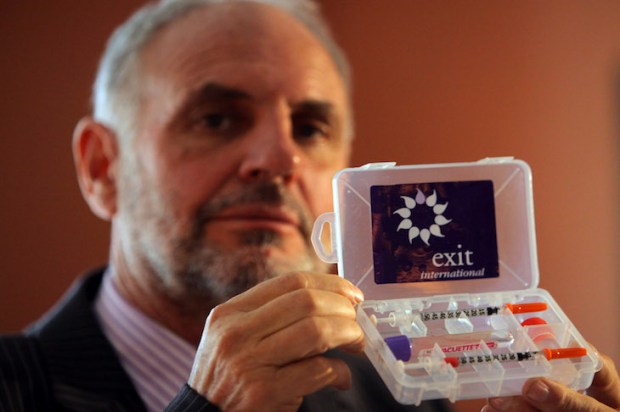As MPs prepare to consider a private member’s bill to license what is being euphemistically called ‘assisted dying’, in Belgium a young woman with mental health problems has been cleared for euthanasia some time this summer. The Belgium-based outlet DeMorgen outlined the situation of the 24-year-old, identified only as ‘Laura’. Aside from depression and the feeling that ‘she wanted to die ever since childhood’, ‘Laura’ is physically healthy, enjoys coffee, friends and going to the theatre.
According to the New Yorker, 13 percent of Belgians who died by euthanasia last year didn’t have a terminal illness — and 3 percent suffered from mental disorders. Belgium legalised euthanasia in 2002. Since then the numbers have soared. There were more than 1,800 reported cases in 2013, an increase of more than 25 per cent on the year before. And the numbers keep on rising. Neighbouring Holland, which legalised euthanasia in 2001, had nearly 5,000 cases in 2013. And it too is increasingly offering euthanasia to mentally ill people.
And now Parliament is being asked to legalise a variant of this here – what is being referred to by the sugar-coated name ‘assisted dying’ but is in reality assisted suicide. What is being proposed is that terminally ill people should be supplied, on request, with lethal drugs if they are thought to meet certain criteria.
Such a law would cut completely across social attitudes to suicide. We are rightly compassionate and understanding about suicide. But as a society we are clear that suicide itself is not something to be encouraged, much less assisted. We have suicide prevention strategies and suicide watches. When we come across people who are suicidal, we try to help them to live rather than to kill themselves. We don’t give them the proverbial push from the bridge. That is why, when suicide was decriminalised in 1961, the government of the day was at pains to reassure Parliament that it did not betoken any change in the seriousness with which suicide was viewed.
Doctors have a key role in suicide prevention. If they have reason to believe that a patient is suicidal, they have a duty to try and protect that patient from self-harm. Yet now we are being told that for some of their patients they should do an about-turn and consider whether they should be supplied with lethal drugs.At the moment, it’s people who are terminally ill. But how long will it be before we are told that it’s suitable for others too? Lord Falconer’s self-styled ‘commission on assisted dying’ suggested three years ago that assisted suicide shouldn’t be allowed for disabled people who weren’t terminally ill ‘at this point in time’. Those words are chilling. As Paralympic athlete Tanni Grey-Thompson commented, it tells me that I may not be a candidate yet but I’m in the waiting room.
We are told not to worry about Belgium or the Netherlands and their euthanasia laws because what is being proposed here is just assisted suicide, where people swallow lethal drugs supplied by a doctor, not euthanasia – where a doctor administers a lethal injection. Oregon, we are told, is the model to follow.Well, Oregon is hardly reassuring. Its death rate from legalised assisted suicide is nearly sevenfold what it was when the law was changed and there is evidence of lethal drugs being supplied to people with undetected clinical depression. But something is now happening there which we were assured would not – an attempt is under way in Oregon’s legislature to extend the law.
If we had an Oregon-style law here in England and Wales, we would be looking at over 1,500 assisted suicides a year – and rising. And, with only one in seven GPs willing to have anything to do with such practices, we could expect to see the doctor-shopping that is such an unfortunate feature of the Oregon scene.
And which place provides a more accurate guide to what would happen in Britain – a sparsely-populated and predominantly rural state on the far side of America? Or a densely populated and largely-urban country just across the North Sea?
Britain was the founder of the modern hospice movement and its specialist end of life care leads the world – it was ranked in first place by the Economist in 2010. We need to be focusing on ensuring that everyone who is dying, wherever they live, has access to this, not making laws to help them kill themselves.
Lord Alton of Liverpool is a life peer in the House of Lords





Comments